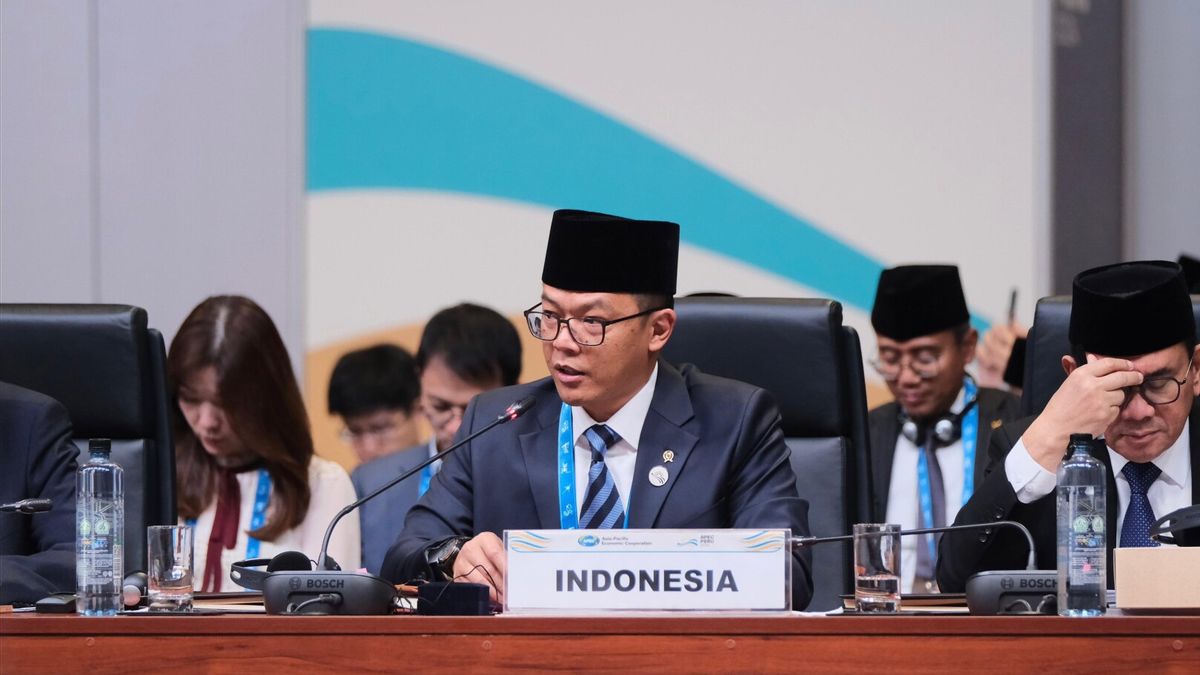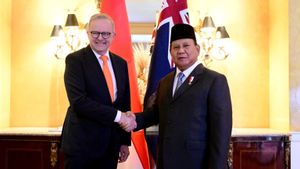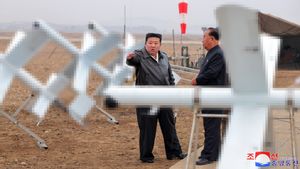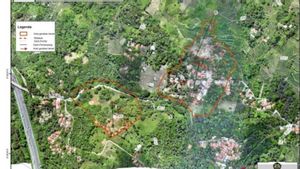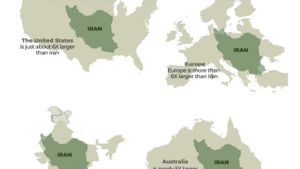JAKARTA - Minister of Foreign Affairs of the Republic of Indonesia Sugiono highlighted the digital divide in the Asia-Pacific region by calling it a responsibility to act as well as opportunity, while attending the Asia-Pacific Economic Cooperation (APEC) ministerial meeting (AMM) in Lima, Peru Thursday.
Foreign Minister Sugiono emphasized the importance of innovation and digitalization as an economic driving force in the Asia-Pacific region in a meeting session with the theme "Innovation and Digitalization to Promote Transition to the Formal and Global Economy".
"Asia-Pacific, although being the center of the world's leading digital economy, is still faced with major challenges. More than 1.7 billion people do not have internet access, while nearly 70 percent of workers in medium and low economies do not have basic digital skills," said Foreign Minister Sugiono, citing a statement from the Indonesian Ministry of Foreign Affairs, Friday 15 November.
"This is an opportunity as well as a responsibility for us to act," said Foreign Minister Sugiono.
Furthermore, Foreign Minister Sugiono explained that Indonesia sees the development of digital infrastructure as a fundamental step. Programs such as the Digital Village Initiative implemented in Indonesia have shown the importance of accessing technology for rural communities and vulnerable groups.
This infrastructure, according to Foreign Minister Sugiono, must be balanced with skills training that allows each individual to take advantage of opportunities in the digital economy.
In the context of economic transformation, Indonesia also continues to encourage initiatives that support the transition from informal to formal sectors. This includes expanding access to financing for micro and small businesses, entrepreneurship training, and social security for workers in the informal sector.
On the same occasion, the Indonesian Foreign Minister also emphasized the importance of empowering women in the digital economy. According to him, the gender gap must be overcome immediately to ensure that women can fully participate in the digital sector.
SEE ALSO:
Indonesia's gender-responsive policy includes access to affordable digital devices, skills training and other inclusive strategies.
"Asia-Pacific has great potential to become the main leader in the world's digital economy. To achieve this, we must ensure that this digital transformation is inclusive, nothing is left behind, and all parties can contribute," he concluded.
The English, Chinese, Japanese, Arabic, and French versions are automatically generated by the AI. So there may still be inaccuracies in translating, please always see Indonesian as our main language. (system supported by DigitalSiber.id)
